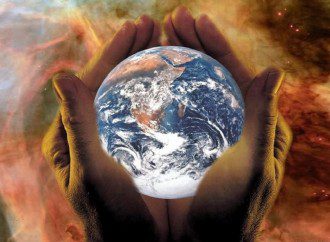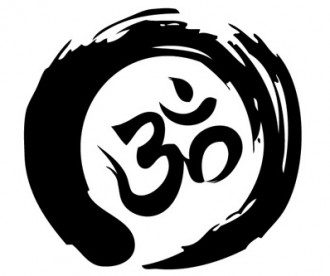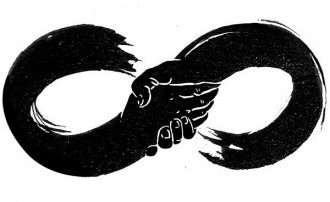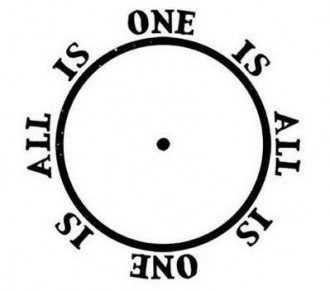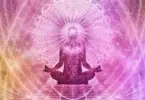Guest Writer for Wake Up World
“He who, in pursuit of his own happiness, hurts others that are also seeking happiness, will not find it, either in this world or the next.” ~ Buddha
Our society is morally sick. Due to exaggerated value placed on individualism and materialism, most people are driven to pursue their own desires at whatever cost. Needless to say, this causes conflict and suffering to others, and to the planet — and yet many people are not even aware that this is not an intelligent strategy in the pursuit of their own personal happiness, much less the success of a society.
This situation is like if every cell in your body decides to act on its own, and consume as much nutrients and energy as it can – even more than it needs. Soon some parts of your body will get sick, and that will damage the health of the whole body – including that of those greedy cells.
[pro_ad_display_adzone id=”110028″]
The challenge today is making the individual cells rediscover: (a) their relationship with each other and the whole; (b) what a good “cell life” is all about.
Spirituality offers an alternative way to living life and being happy, that does not involve competition and materialism. What is the principle that we find in all spiritual traditions that could make a radical difference to the world? Oneness.
In Oneness, each cell takes care of itself but also works in cooperation with others, having the health of the whole system as its goal. As a result, the cells get all the food and energy they need, together with a better physical and social environment, and a longer lifespan.
The Need For Oneness
The understanding and experience of oneness can help stop wars, exploitation, injustice, violence, abuse, environment damage, among other problems. These actions would hardly have any reason to arise, just like it makes no sense for the left hand to hurt the right hand, or for the blood-cells to wish the destruction of the bone-cells, just so their “way of life” can prevail.
Oneness can improve our social, political, and professional environments, helping create a more “enlightened society”. A society where we recognise that, as human beings, we are all cells of a larger organism.
This may sound highly utopian, because we probably will never live in a world where everyone understands and behaves in accordance to the truth of oneness. However, this change is possible, and any small progress in this direction has the potential to create much good.
Spiritual teachings – in all their variety of approaches and traditions – offer both the perspective and the tools required for this transformation to occur.
The Philosophy of Oneness
Some traditions speak of oneness based on an idea of a common origin. For instance, Christianity says we all come from God, and are children of God. If that is the case, then we are all brothers, and hurting each other would be less likely. “Love your neighbor as yourself.” (Mark 12:31)
In many Eastern traditions, oneness is more based on an idea of common nature, or common being.
- Buddhism speaks of the interdependence of all things.
- Zen invites you to move beyond individuality, to drop away body and mind so that you can see and live from the Big Mind (daishin).
- Mahayana Buddhism emphasizes compassion as one of the highest teachings, personified in the ideal of the Bodhisattva.
- Taoism also invites you to move beyond the attachments to yourself, so that you can life in harmony with the Tao. “Supreme good is like water. Water greatly benefits all things, without conflict. It flows through places that people loathe. Thereby it is close to the Tao.”
- Advaita Vedanta teaches that the whole universe is only Pure Consciousness. Therefore, all is of the same substance and nature, and separation is a mistaken perception.
- Yoga traditions emphasize non-violence (ahimsa) as the heart of the yogi’s way of life, the cornerstone of yogic ethics.
[Note: some of these philosophies clarify that even the idea of oneness is still conceptual/relative, and that ultimate truth is beyond that. However, they honour the fact that living by the principle of oneness develops a mind that is more ready to fully absorb the non-dual truth.]
In recent times, some people are coming to the experience of oneness through psychedelics and shamanic rituals. I have heard of 5-MeO-DMT being called the “God molecule”, because it makes the person who is taking it have visions about the oneness of all things.
The conception of oneness takes different flavours and shapes, depending on the tradition behind it, but they all boil down to this: an invitation to conceive of yourself, and your wellness, as being larger than your body-mind.
Lastly, even if all these traditions were wrong, and we were looking at it only from a pragmatic perspective, we can see that the concept of oneness is a powerful tool to transform ourselves and our world, because it promotes goodness and positive action.
The Practice of Oneness
There are two aspects of the practice of oneness.
First, you need to appreciate it within yourself – and ideally experience it. Reflecting about these things, and hearing related teachings, indeed helps. But to understand it in a deeper level, spiritual practice is essential; especially in the form of meditation. It helps move your identity from the ego to a larger consciousness.
The second aspect is to translate it to action. The ideal of oneness and non-violence unpacks into several other principles. For instance, here are the 5 core Buddhist precepts.
- Not to cause harm
- Not to take what is not given
- Not to speak what is untrue
- Not to engage in sexual misconduct (one that creates suffering)
- Not to use intoxicants
Can you see how breaking any of these guidelines creates circumstances of suffering? Even taking intoxicants – which some may argue causes harm only to myself – also adds to the suffering in the world, because it obscures the power of mindfulness in us, making us more prone to causing harm via other means.
Just imagine the paradise we would live in if most people followed all these precepts! Even if only in their most basic expressions, these simple guidelines have the power to eradicate much suffering.
Oneness is a good rule of thumb to inform our actions. In a way, it is like taking the principle do unto others as you would have them done onto you, but on a deeper level.
Living a life in harmony with the ideal of oneness is highly challenging, and a continuous process of growth. You can do it, little by little!
Ultimately, there are no hard rules. Keep in mind the unity of all beings, and make your actions be a reflection of your ever-deepening understanding of oneness. Don’t be disheartened by how hard this can be at times. Simply keeping this ideal, to the best of your ability, already puts you in a better space than that of most people.
One word needs to be said about balance. Don’t forget that you are a cell of this big body of life too! So, while in service to others, take care of the health and well-being of yourself as well. If the lung cells die as a result of helping out the heart-cells, however heroic that may sound, its not really helpful to the organism as a whole, is it?
So let us act in a way that benefits the life of the cell and of the organism at the same time.
Oneness: All Is One
The practice of oneness makes our actions congruent with our inherent values and ideals. It makes us live a life that truly matters.
Whether you are involved in activism and philanthropy or not, realizing oneness and implementing it in your actions is one of the best ways to really effect change in society and world. It’s an act of care.
It can be challenging to know how to “apply” and live this concept with integrity and balance. But if you constantly think about it and have it as a north, it will be a powerful tool in polishing your character and allowing you to contribute more – big and small – to the welfare of the organism.
Acting based on oneness is internally rewarded with happiness, regardless of the results of your efforts. Because we feel connection to everything – instead of being isolated, alone and helpless.
When you live your life as if you were an isolated individual, the relevancy of your actions and results is limited. When you live and act with the awareness of being part of a larger role, of being bigger than your small body-mind-life, than you are really contributing to this whole, and your actions matter tenfold more.
When you live like this, the whole is also contributing to you, and rewarding you with a sense of fulfilment that cannot be got through individualistic endeavors.
The choice is clear: live and die as an individual cell, or live and die as the whole. The happiness of a cell is only as big as the cell. The happiness of the whole organism is much larger than whatever goal the cell can achieve.
If you focus only on your individual needs, you live the life of a cell. Focus on the greater good, and you live the life of the whole organism. Please help me spread this message to the other cells by sharing this article.
Also by Giovanni:
About the author:
 Giovanni Dienstmann is a meditation and personal growth blogger. He has practiced meditation daily for the past 15 years, read hundreds of books on spirituality, tried numerous different practices, and spent time on retreats with teachers and instructors around the world – including zen ‘masters’, western teachers and Indian yogis. By deeply practicing and taking these teachings to heart, he found the peace and freedom he was looking for. His mission is now to bring meditation and personal growth to a million people.
Giovanni Dienstmann is a meditation and personal growth blogger. He has practiced meditation daily for the past 15 years, read hundreds of books on spirituality, tried numerous different practices, and spent time on retreats with teachers and instructors around the world – including zen ‘masters’, western teachers and Indian yogis. By deeply practicing and taking these teachings to heart, he found the peace and freedom he was looking for. His mission is now to bring meditation and personal growth to a million people.
“My mind is no longer my boss, and it doesn’t need to be yours either.”
Giovanni blogs at LiveAndDare.com and offers meditation coaching calls and chat at Coach.me
[pro_ad_display_adzone id=”110027″]

